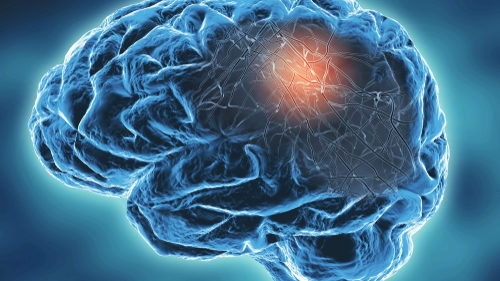The term “wet brain” is used to describe a chronic brain disorder known as Wernicke-Korsakoff syndrome. It is important to note that though Wernicke encephalopathy and Korsakoff syndrome are two separate brain conditions, they often occur together, and many members of the medical community view them as different stages of the same disease. Both occur due to brain damage caused by vitamin B1 (thiamine) deficiency. Typically Wernicke encephalopathy precedes Korsakoff syndrome. Wernicke encephalopathy is characterized by bleeding in the brain that damages the lower areas of the brain (e.g. thalamus and hypothalamus). When the symptoms of Wernicke encephalopathy begin to lessen, Korsakoff syndrome sets in as a result of permanent damage to areas of the brain involved with memory. Many individuals that struggle with alcohol abuse and/ or alcoholism lack vitamin B1, as alcohol interferes with the body’s ability to properly absorb certain minerals and nutrients, including vitamin B1. According to the National Institute on Alcohol Abuse and Alcoholism (NIH), between eighty and ninety percent of alcoholics with Wernicke encephalopathy go on to develop Korsakoff syndrome.
Signs and Symptoms
Every individual is different and will likely exhibit a unique combination of signs and symptoms related to Wernicke-Korsakoff syndrome. Wet brain has a sudden onset, and the sings and symptoms present in two distinct stages:
- Stage One: Wernicke encephalopathy can include the following symptoms, as provided by Beth Israel Lahey Health Winchester Hospital:
- Confusion
- Loss of balance
- Lowered body temperature
- Lack of coordination
- Rapid heart rate
- Muscle atrophy and weakness
- Leg tremors
- Diminished reflexes
- Double vision
- Abnormal eye movements
- Coma
- Stage Two: Korsakoff syndrome can include the following symptoms, as provided by the Alzheimer’s Association:
- Memory loss
- Hallucinations
- Vision problems
- Inability to form new memories
- Disorientation and/ or confusion
- Confabulation (e.g. fabricating events to fill in memory gaps)
It is not uncommon for signs and symptoms of wet brain to be misinterpreted as other health problems. The treatment of Wernicke-Korsakoff syndrome will include remedying an individual’s vitamin B1 deficiency, which, for some could require months of intravenous vitamin B1 treatments. Bear in mind that once developed, Korsakoff syndrome cannot typically be reversed. However, if wet brain is caught early on (during stage one), with proper treatment, an individual can make a full recovery.
For Information and Support
If you are concerned for yourself or a loved one in regards to substance abuse and/ or addiction we recommend reaching out for help as soon as possible. If left untreated, substance abuse can result in long lasting and potentially life-threatening consequences. Keep in mind: you are not alone! There is an entire network of professionals that are available to help and support you and your loved one throughout the recovery process. The earlier you seek support, the sooner your loved one can return to a happy, healthy, and fulfilling life.
Please do not hesitate to reach out with any questions regarding our specific program at Haven House Addiction Treatment and/ or general substance abuse and/ or addiction treatment related information. Our highly trained staff is readily available to discuss how we might best be able to help you and your loved one. We can be reached by phone at 424-258-6792. You are also welcome to contact anytime us via email at admissions@hhtxc.com.
